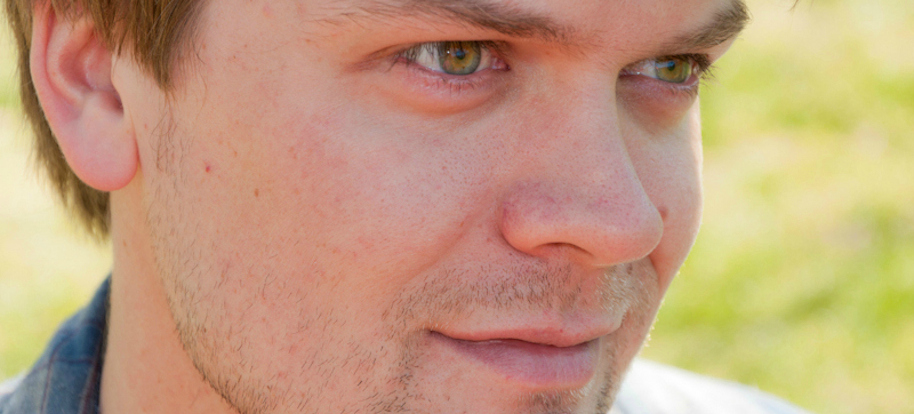
Can I change?
Can you?
Are we stuck with who we are, or can we transform like the caterpillar into a beautiful butterfly?
It’s a question I get asked a lot as an Occupational Psychologist, usually in quite a hesitant way.
‘But can we really change?’ is often how it’s phrased…
…most commonly when I’m running a development activity or some training where the whole point of the activity is to create personal change and development.
Interestingly, people frequently seem comfortable that they can learn skills – for example, most people are happy that they can learn how to drive – but developing behaviourally, such as in assertiveness or decision-making, they’re much less sure about. And areas such as project management, which are both skill-based and behavioural, can cause people discomfort as they try to approach it in one or the other way.
So it seems it’s when you start to talk about behaviour that the real discomfort comes. ‘But I’ve always been shy’, Jane might say, when discussing how to develop more confident presentation skills. And Jane might struggle to even imagine that she could develop her presentation skills given how dreadfully anxious she feels when she even starts to think about the idea of standing up in front of others.
Deep down inside
So this is a question I’ve thought about deeply. And not only for others – for myself as well. It would be a bit pointless, for example, investing the amount of time I do in my own personal development and the development of others – to the extent my business is based on it! – if I thought the answer was no…but how can I explain the seemingly contradictory ideas of a consistent ‘self’, whilst still being able to change and grow?
Psychologists would say that we all have some consistent, reasonably stable, underlying ‘personality traits’. That is, if we lived in a world where no-one ever focused on development (imagine!), these traits would drive our preferred way of behaving. Thinking about the example above, the individual, Jane, might be someone who finds meeting new people a challenge. This spreads to situations like presentations, networking events, and even parties. Her shyness would drive behaviours such as blushing, staying quiet when with others, and not being proactive about meeting new people.
Behavioural choice
But while psychologists are likely to agree that Jane’s underlying preference is unlikely to change too much, most would say that she has a choice about the way in which she behaves. They would argue that just showing Jane that there are choices – other ways to behave – will help.
Many people with a strong behavioural tendency or preference in something will find it hard to imagine someone with the opposite preference. So if Jane comes across Greg, who is very confident and loves meeting new people, she may not ‘get’ Greg at all. So just showing Jane that there is another way to behave is helpful.
We can support Jane further by providing her with more options – ideas on how she could behave – in each situation. Understanding and practice (amongst other techniques) will help her to be able to make a conscious and active choice about the way she behaves in future situations.
The ‘rubber band’ of development
My personal metaphor for development in this context is of a rubber band. At first, our rubber band of development is quite tight, very much bound up around our ‘natural’ preference. But with development activities, training and focus, we can start to stretch our elastic band out in length and breadth, giving us many more choices in each situation.
At parties or networking events, Jane might, for example, learn to ask certain questions of others (‘what’s your connection to the host/s?’ or ‘what’s your area of interest/expertise?’), letting them do the talking and putting both parties at ease. She might learn specific body language that makes her appear confident, so that others react to her as if she is confident, and in turn this creates a virtuous circle eventually increasing her actual confidence in the situation.
In times of stress, it is possible that the elastic band will spring back to the original preference. When we understand that this is a temporary situation, we can stop globalising a momentary lapse or a one-off event into the destruction of all the work we have put into our development. In addition, if we know there are certain situations that might trigger or cause such stresses, we can take extra care and attention in those situations, or avoid them.
How it works in practice
In our scenario above, Jane has made a great deal of progress working on her shyness, and many of her work colleagues wouldn’t recognise that as a description of her. However, the situation she finds most challenging is when she is meeting people who are both new and more senior to her at work, which can be a challenge as she is often involved as a technical expert in sales pitches, where very senior clients may be involved.
These situations are the ones she dreads and are most likely to trigger her shyness and social anxiety. They aren’t situations she can avoid, so she has to manage these carefully. She has found that several techniques help ensure her rubber band of development stays stretchy in this situation:
- Being clear about her role in the presentation – Jane feels most comfortable when there is no ambiguity about her role. She agrees this in advance with the team and ensures she knows what is expected of her and when.
- Knowing and understanding her subject – as a technical expert, Jane hates not knowing the answer to a question. She prepares thoroughly for the presentation until she feels confident she can answer any reasonable question – and has an appropriate phrase (‘that’s a great question – I’m going to take it back to my colleagues and discuss it, and we’ll come back to you with an answer as soon as possible’) should one she can’t answer come up.
- Knowing her audience – Jane works with the team, some of whom may have met the client before, to understand who she is presenting to. This includes any particular interests they may have in her product – for example, if there is a finance person she will ensure she has the numbers side covered in more depth than usual, if an IT person, she may even decide to bring an IT specialist along. She also tries to get to know something personal about each individual in the audience through sites such as Linked In.
- Deep breathing exercises – Jane knows that breathing exercises will help her control her heart rate and some of the physiological symptoms of her shyness.
When we start looking around us, and thinking about it, the evidence is all there that we can develop. We learn skills, both technical and behavioural, throughout our lives. Some of us learn more quickly than others, but the very first step for all of us is being told we have a choice.
If you knew you had a choice in the way you behave, and that your personality ‘preferences’ were just that, what would you focus on developing? Share your development focus in the comments below, and I’ll suggest a tip in that area to support your growth.









Interesting post! I would like to change my habits in terms of eating and exercising, she says in the middle of making millionaire’s shortbread… It’s about making my actions match and not sabotage my longer-term goals… So any tips you can offer would be welcome! :-)
Thanks Cat! I’ll definitely be posting about habits, and creating lasting change in the future – in the meantime, check out The Power of Habit on my books page http://ellenbard.com/books/ – it’s a fun and engaging book that really gives great advice on how habits work and what you can do to adapt them.
Plus, you’ll love the books page if you haven’t already seen it!
There have been times where I have felt unhappy because of circumstances in my life. Realizing that I do have the power to create happiness no matter what is going on around me, helped me to feel so much more empowered. I believe we can really change our behavior and how we view life, each in our own unique way. Thanks Ellen!
Thanks Cathy, and I so agree, that’s one of those terrifying (because, the responsibility! you *can* take control of your life!), and wonderful realisations :-)
I simply believe change is inevitable. Everything changes…which might not always seem like a good thing, but if we make the choice to grow we make change easier on ourselves. Love the way you told the story of Jane, which makes everything so much much clearer Ellen. :-)
Thanks Elle, and yes, that’s a great point – change is going to happen anyway, so we can get ahead of it by making conscious changes in the right direction for us :-)
Yes Ellen great question as there are people I know who believe they can’t change- I know from my own experience that we all can change if we choose too. Also nature is a great model for demonstrating change- Like the case study xxoo
You’re right, and I think it’s definitely one of those limiting beliefs if we believe we’re always going to be the same way. x
I think anyone can change if they are aware of what they want to change and want it badly enough (the “what” and “why”). As an extreme introvert, meeting new people and networking were not fun for me. But, in the recession of 2008 when the economy tanked and I was looking for a job, I learned how to make both activities fun. My family’s livelihood depended on it (my “why”).
I spent all too many years digging my heals in the sand and saying, “That’s just the way I am.” Once I dropped that belief, many areas of my life finally changed for the better and I became much happier.
Change is always possible for anyone.
Great example Paige – and I think that’s a really helpful point around the ‘why’. When I’m coaching, and we have a development activity in place, I often ask ‘how committed to this action are you on a scale of 1-10’. If it’s below a 7, we go back and look again at why, and sometimes bin it for something they feel more passionate about. Life is definitely easier if we admit and open to the possibility of growth and change. I love the idea of making growth and change activities as fun as possible!
Yes, I do think we can change, but I don’t think it’s a snap. We do need diligence, persistence, and encouragement. I’m focusing on healing trauma and fear. Sometimes I feel it’s impossible but I know it’s better than before!